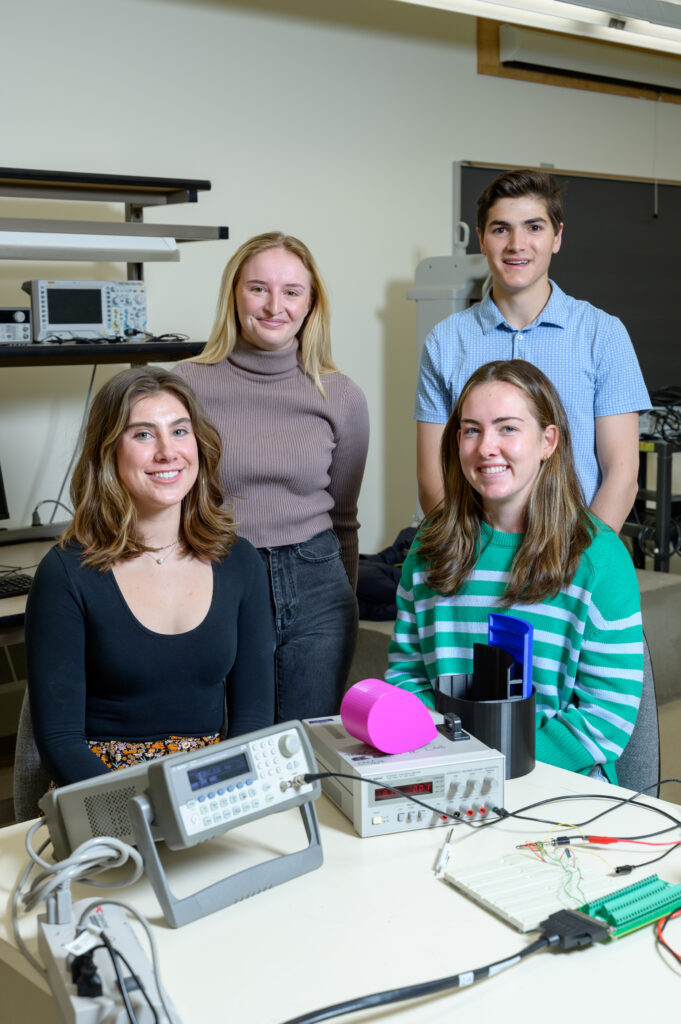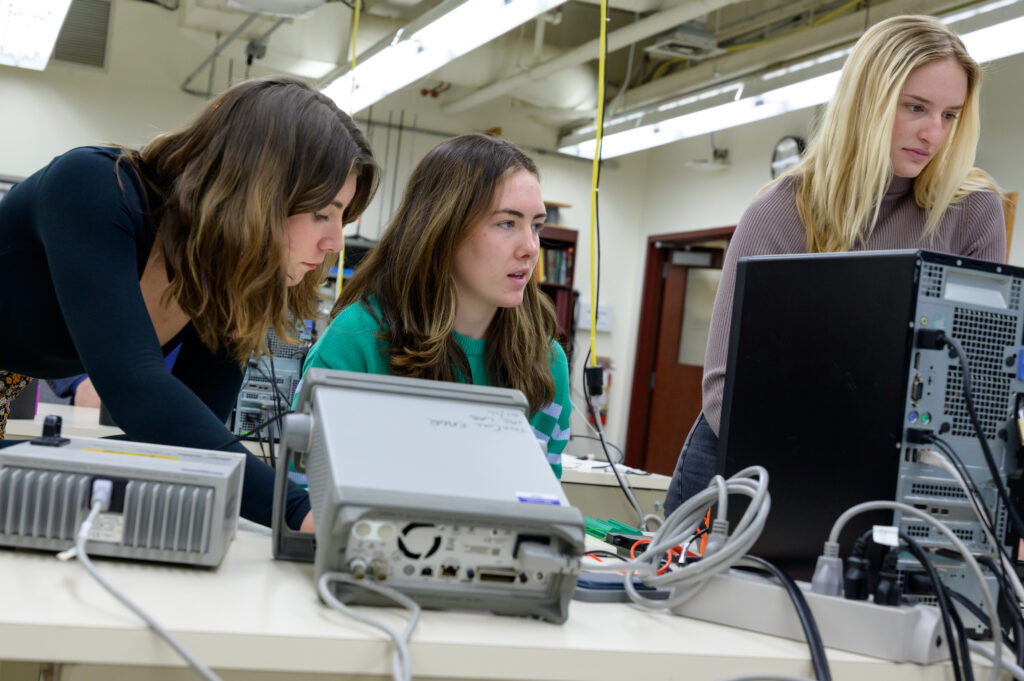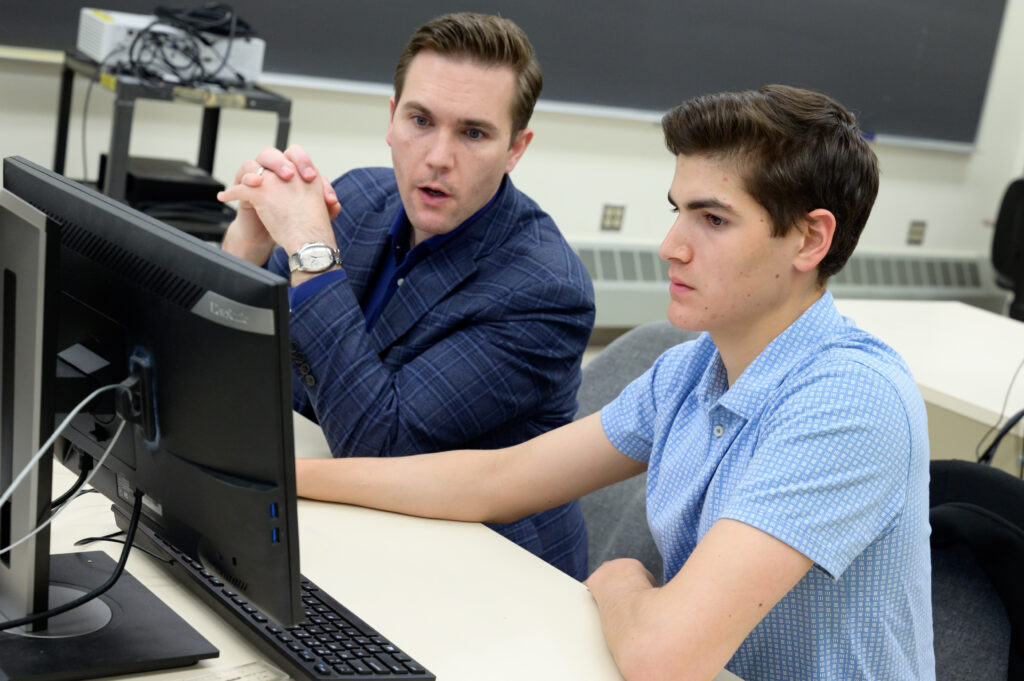Engineering Majors Receive NASA CT Space Grant to Develop Wave Energy Converter
A team of Trinity College engineering majors has received a Student Project Grant from the NASA Connecticut Space Grant Consortium (CTSGC). The award supports the group’s development of a device that efficiently transforms wave energy into usable electricity.

The recipient of the grant is Olivia McMichael ’24, who is working with fellow engineering majors Alexandra Barrett ’24, Tyler Gillette ’24, and Zoe Tiffin ’24 on their senior capstone project, “Variability in Wave Energy Capturing from Triboelectric Nanogenerator.”
“Being recognized with this award means our work on this project is important and can be used for greater things,” McMichael said. “It says that people find value in what we’re doing.”
McMichael, who has a concentration in electrical engineering and a minor in applied mathematics, led the application process for the grant, which included submitting a proposed budget and timeline. She said that the project was inspired by her team members’ passion for addressing the climate crisis.
“We wanted to work on sustainable energy,” she said. “Everyone knows about solar panels and wind turbines, but how else could we generate electricity?” The team is building a scalable triboelectric nanogenerator (TENG) wave energy converter, which harnesses power from waves in bodies of water. “We’re expanding upon the existing research about the TENG,” McMichael said. “There’s important work that has to be done to reduce carbon emissions and to find other ways to generate energy, focusing on making it more accessible and easier to implement.”
This semester, the team is creating prototypes of its TENG device using Trinity’s 3D printers, building circuitry components, determining how best to harvest and store the energy, and running computer simulations of how it all would work, before physical testing begins.

Each engineering senior capstone project at Trinity is provided with a modest budget, but the NASA CTSGC award triples the funding available to McMichael’s team. NASA CTSGC is a federally mandated grant, internship, and scholarship program that is funded as a part of NASA Education.
“The grant allows us to invest in more quality pieces for the project. Some materials can get expensive, so it’s nice to not be limited in that regard,” said McMichael.
Clayton P. Byers, assistant professor of engineering, is both the project adviser for McMichael’s team and Trinity’s campus director for the NASA Connecticut Space Grant Consortium. “This grant is a big honor,” he said. “Olivia and her team’s idea fits with some of the missions of NASA, which is largely about space exploration, but is also interested in Earth’s climate.” Byers said that while engineering students most often secure these grants, applications are open to any student whose work connects with NASA’s missions.

For this project and all engineering senior capstones, Trinity students use their foundational knowledge to stretch themselves creatively and technologically. “A lot of what the students learn in class are the fundamental skills, and seniors have the opportunity to apply those skills to a more complicated problem,” Byers added.
According to the student team, this project has provided opportunities to explore their interests and experiences that connect to their post-Trinity plans. After graduation this spring, McMichael will work for Ensign-Bickford Aerospace & Defense in Simsbury, Connecticut, where she interned last summer.
Tiffin, who has a concentration in mechanical engineering and a minor in urban studies, intends to work in the areas of water treatment or waste water management.

For Barrett, who also has a concentration in mechanical engineering, the work is closely aligned with her interest in the fight against climate change. “Through the extensive research and design of this project, I have developed a deeper passion for renewable energy, and I hope to pursue a career as a mechanical engineer in support of a sustainable future,” she said.
